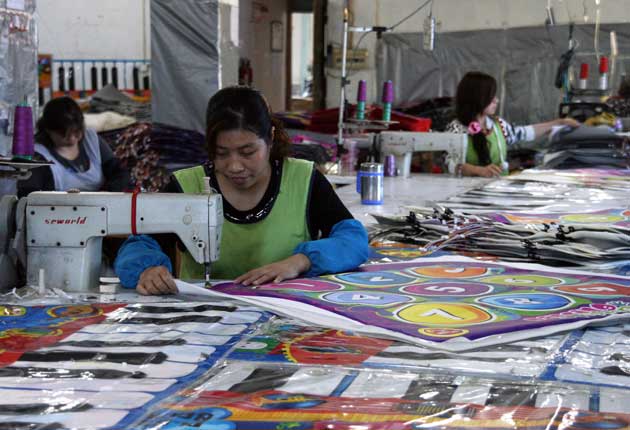Fears of stagnation as manufacturing stalls

By Sean O'GradyEconomics editor
A sharp slowdown in domestic and export demand has pushed business sentiment in the manufacturing sector to its lowest level since the recession's depths in September 2009.
While it does not necessarily herald a "double-dip" recession, it does suggest that the economy is set for a prolonged period of stagnation.
As the Bank of England prepares for its interest rate decision next week, this also increases the chances that it will opt for a further round of "quantitative easing", the direct injection of money into the economy to boost demand. Sterling slid on the prospect.
The Chartered Institute for Purchasing and Supply's latest survey of managers at the sharp end shows the economy's rebalancing is the latest clear signal that the manufacturing revival, which has led the recovery, is starting to lose much of its momentum.
Fragile consumer confidence at home – confirmed this week in polls – and the crisis in the eurozone are depressing manufacturing output here and across the EU. Other major world economics powers such as the US and China are also seeing a slowdown in growth, while natural disasters in Japan threaten a relapse into recession there.
June's overall reading of 51.3 in the purchasing managers' index was below expectations of 52.3 and the weakest since September 2009. The export orders index dropped from 52.7 to 50.7 and there was also an ominous decline in the employment indices, suggesting job creation may also stutter.
The Cips surveys, conducted by the Markit research company, are usually a reliable leading indicator of future trends in the economy, with any reading above 50 indicating expansion.
Rob Dobson, senior economist at Markit, said: "The manufacturing sector continued to slip closer to stagnation in June. With strong headwinds already in place and austerity measures likely to put increasingly counteractive pressure on domestic and consumer demand, it looks as if manufacturing has entered a slower growth phase which could be with us for some time."
Attention ahead of the Bank of England's rate's decision on Thursday will now be focused on prospects for the service sector, which accounts for some 70 per cent of GDP, against manufacturing's 12 per cent.
Subscribe to Independent Premium to bookmark this article
Want to bookmark your favourite articles and stories to read or reference later? Start your Independent Premium subscription today.

Join our commenting forum
Join thought-provoking conversations, follow other Independent readers and see their replies